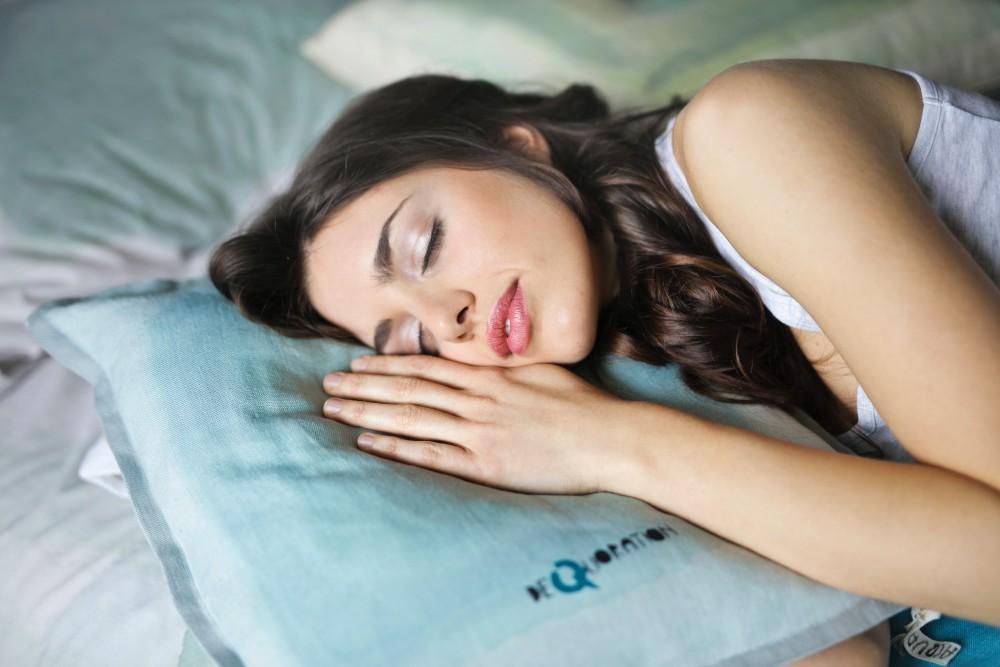How Sleep Affects Your Skin
Good sleep isn't just about feeling refreshed—it's about looking refreshed too. While we often hear about the benefits of beauty rest, many don't realize how scientifically significant sleep is for skin health.

Good sleep isn't just about feeling refreshed—it's about looking refreshed too. While we often hear about the benefits of beauty rest, many don't realize how scientifically significant sleep is for skin health. Your skin is your largest organ, and it goes through vital restoration processes while you rest. If you're neglecting your sleep, you're likely compromising your skin. In this guide, we’ll explore exactly how sleep affects your skin, the consequences of poor sleep, and practical tips to improve your nighttime routine for a glowing complexion.
The Skin’s Regeneration Cycle During Sleep
During the day, your skin protects against UV rays, pollution, and environmental stress. At night, it shifts into repair mode. Sleep and skin health are closely connected because this is when cellular regeneration peaks.
Here’s what happens while you sleep:
- Increased blood flow to the skin helps deliver nutrients and oxygen
- Collagen production rises, which keeps skin firm and elastic
- Cell turnover accelerates, shedding old cells and making way for new ones
- Hydration balance is restored, preventing dullness and dryness
When you skimp on sleep, these processes are disrupted—leading to visible signs of aging and compromised skin barrier function.
The Visible Effects of Sleep Deprivation on Skin
Lack of sleep doesn’t just make you feel tired—it makes you look tired too. When you're not getting enough quality sleep, your body produces more cortisol (the stress hormone), which can trigger inflammation and break down collagen.
Common signs of sleep-deprived skin include:
- Dark under-eye circles and puffiness
- Dull, uneven skin tone
- Fine lines and wrinkles appearing more prominent
- Loss of skin elasticity
- Acne flare-ups and increased sensitivity
Consistently poor sleep undermines your skincare efforts, no matter how advanced your product lineup is.
How Sleep Impacts Specific Skin Functions
Let’s break down how sleep affects your skin on a biological level, highlighting the processes that are optimized when you're well-rested.
1. Collagen Synthesis:
While you sleep, the body increases collagen production. This protein keeps the skin smooth and youthful. Poor sleep slows this down, leading to sagging and wrinkles.
2. Blood Circulation:
Enhanced nighttime circulation gives your skin a healthy glow. With inadequate sleep, blood flow decreases, leaving skin looking pale or ashen.
3. Hormonal Balance:
Growth hormone is released during deep sleep, promoting tissue repair. Cortisol decreases, minimizing stress-induced breakouts.
4. Skin Barrier Repair:
Your skin barrier locks in moisture and protects against toxins. Overnight, the barrier is repaired. Sleep deprivation weakens this function, causing dryness and irritation.
5. Melatonin Production:
This natural antioxidant fights free radicals and supports skin renewal. Poor sleep reduces melatonin levels, accelerating skin aging.
Sleep Disorders and Skin Problems
Chronic sleep disorders like insomnia, sleep apnea, or restless leg syndrome can affect your skin health over time. Studies show that individuals with poor sleep quality are more likely to suffer from:
- Inflamed and irritated skin conditions like eczema or rosacea
- Acne breakouts caused by stress hormone imbalances
- Hyperpigmentation and poor skin texture
This reinforces the importance of addressing sleep quality as a core part of your skincare regimen.
Ideal Sleep Habits for Better Skin
Your beauty sleep strategy should focus on both the quantity and quality of rest. Here are research-backed tips to help your skin look its best by morning.
1. Aim for 7–9 Hours of Sleep:
This is the optimal range for adults. Less than six hours consistently affects your skin’s recovery processes.
2. Sleep on Your Back:
Sleeping face-down or on your side can cause friction and wrinkles. A silk or satin pillowcase reduces skin creasing and hair breakage.
3. Cleanse Before Bed:
Never sleep with makeup or SPF on. Residue can clog pores and prevent your skin from breathing properly overnight.
4. Use Nighttime Skincare:
Apply hydrating serums with hyaluronic acid or niacinamide, and moisturizers with ceramides or peptides to aid skin repair while you rest.
5. Elevate Your Head:
This helps reduce puffiness by preventing fluid accumulation, especially around the eyes.
6. Limit Blue Light Before Bed:
Exposure to phones or laptops suppresses melatonin production. Avoid screens an hour before sleep or use blue-light blocking filters.
7. Stay Consistent:
Go to bed and wake up at the same time daily. A regulated sleep cycle supports better circadian rhythm and healthier skin.
Nutrition and Sleep for Radiant Skin
Food influences both your sleep and your skin. A nutrient-rich diet improves sleep quality and enhances your skin’s ability to regenerate.
Foods that promote restful sleep and skin health include:
- Magnesium-rich foods: spinach, almonds, dark chocolate
- Tryptophan sources: turkey, oats, bananas
- Omega-3 fatty acids: salmon, flaxseeds, walnuts
- Antioxidant-rich fruits: berries, grapes, oranges
Avoid caffeine, alcohol, and heavy meals close to bedtime, as they can disrupt sleep and affect your skin’s overnight renewal.
Stress, Sleep, and Skin: The Vicious Cycle
Stress increases cortisol levels, which disrupt sleep and inflame the skin. This can lead to acne, dullness, and accelerated aging. In turn, poor skin appearance may cause more stress. Breaking this cycle is essential.
Solutions to manage stress and improve sleep include:
- Practicing meditation or deep breathing before bed
- Keeping a gratitude journal
- Stretching or doing light yoga in the evening
- Using calming essential oils like lavender or chamomile
Better mental health contributes to better sleep, which directly improves your skin's appearance and resilience.
Final Thoughts
If you’re investing in skincare but ignoring your sleep, you’re missing one of the most crucial factors for a radiant complexion. The connection between sleep and skin health is well established: when you sleep well, your skin heals, renews, and glows. Prioritizing quality sleep is one of the most affordable and effective ways to support long-term beauty and wellness. From reducing fine lines to preventing acne, beauty sleep is real—and essential.